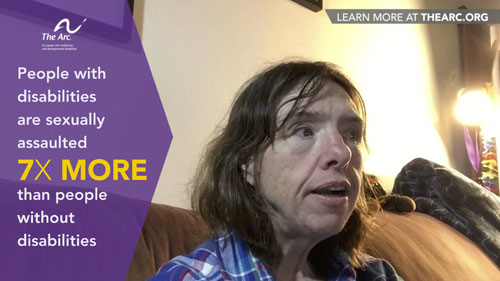Washington, DC – Washington, D.C. – Today, The U.S. Supreme Court declined to grant review of Dassey v. Dittman. Brendan Dassey, a young man with social, learning, and developmental disabilities, was a central figure in Netflix’s smash docuseries, Making a Murderer. He was sentenced to life in prison at the age of 16 after conviction for first-degree homicide, rape, and mutilation of a corpse based solely on his confession – no physical evidence linked him to the crime.
Dassey appealed the conviction on the grounds that his confession was involuntary. The Wisconsin Court of Appeals rejected this argument and affirmed Dassey’s conviction. A federal district court and a divided panel of the Seventh Circuit Court of Appeals held that this rejection warranted habeas relief, but by a 4-3 vote, the en banc Seventh Circuit disagreed. Dassey’s attorneys then made an appeal to the U.S. Supreme Court. Now that the U.S. Supreme Court has declined to review the case, Dassey may spend the rest of his life in prison.
The Arc, the nation’s largest civil rights organization for people with intellectual and developmental disabilities (I/DD) and their families, released this statement following the news that the nation’s highest court will not review Dassey’s case:
“This is a sad day for Brendan Dassey and his family, as well as our criminal justice system. The U.S. Supreme Court’s decision to not review this case means that Brendan will likely serve life in prison based solely on a dubiously obtained confession.
“The U.S. Supreme Court has not addressed the issue of false confessions by juveniles in almost four decades. There has been significant growth of knowledge and understanding of how adolescents can be more susceptible to authority figures, coercion, and misleading tactics in the last four decades. This is particularly true for individuals with intellectual and developmental disabilities.
“Brendan Dassey has already been incarcerated for over a decade, solely on the basis of an unreliable confession. Now the reality of life in prison for a crime there is no physical evidence he committed is sinking in. Sadly, our prisons and jails hold many Brendan Dasseys, too often forgotten, some not even recognized as being robbed of justice. We have a responsibility to ensure everyone in our country accesses justice the same way, which is why we must acknowledge the gaps in justice many are facing. The Arc will continue fighting for the rights of people with intellectual and developmental disabilities, and in the aftermath of this case we will only increase our efforts to ensure that justice is appropriately served,” said Peter Berns, CEO of The Arc.
While people with intellectual and developmental disabilities comprise 2% to 3% of the general population, they represent 4% to 10% of the prison population. Those accused of crimes they did not commit often face the greatest injustices of all, some losing their lives when coerced into giving false confessions. Long before Brendan Dassey’s case hit mainstream media, Robert Perske, respected author, advocate, and long-time supporter of The Arc, compiled a list of people with intellectual disability who gave false confessions to begin documenting these otherwise hidden-away cases.
Earlier this month, The Arc’s Criminal Justice Advisory Panel was launched. The panel is the latest addition to the organization’s National Center on Criminal Justice and Disability’s® (NCCJD®) ongoing advocacy to protect the rights of people with I/DD involved in the criminal justice system. During this event, The Arc presented, Steven Drizin, Clinical Professor of Law at Northwestern University Pritzker School of Law’s Center on Wrongful Convictions of Youth, with The Perske Award for championing the rights of people with I/DD in the criminal justice system. Drizin was presented the award for a lifetime of work on justice reform for youth and people with disabilities and his representation of Brendan Dassey
Established in 2013, NCCJD is the only national center of its kind serving as a bridge between the I/DD community and criminal justice community that focuses on both victim and suspect/defendant/inmate issues. The center provides training and technical assistance, resources for professionals, people with disabilities, and their supporters, as well as educates the public about the intersection of criminal justice reform and the advancement of disability rights. Pathways to Justice,® NCCJD’s signature training tool, is a comprehensive, community-based training program facilitated through chapters of The Arc that helps criminal justice professionals understand their legal obligations toward the disability community, and includes the topic of false confessions. NCCJD is building the capacity of the criminal justice system to respond appropriately to gaps in existing services for people with disabilities, focusing on people with I/DD, who often remain a hidden population within the criminal justice system, with little or no access to advocacy supports or services.
About The Arc
The Arc advocates for and serves people with I/DD, including Down syndrome, autism, Fetal Alcohol Spectrum Disorders, and cerebral palsy. The Arc has a network of nearly 650 chapters across the country promoting and protecting the human rights of people with I/DD and actively supporting their full inclusion and participation in the community throughout their lifetimes.
About The Arc’s Criminal Justice Advisory Panel
The Advisory Panel is the latest addition to NCCJD’s ongoing advocacy to protect the rights of people with I/DD involved in the criminal justice system. It brings together legal professionals who share The Arc’s mission to protect and promote the civil rights of people with I/DD and will help expand NCCJD’s crucial advocacy.




 I never thought lightning could strike twice in the same place, but in my life it happened. I was sexually assaulted four times during my life and this is not uncommon for men or women with disabilities. My friends believed me and were helpful at different stages, but when I talked to the local rape crisis center two weeks after the rape, they didn’t know how to provide support since they do not usually help many men, especially men with disabilities. It was a new experience for them, but even though they didn’t have any training, they tried to be helpful. No one taught me the steps to recovery. I did remember what the SANE nurse told me – she looked me in the eye and said I needed to take care of myself before helping others who have suffered. After two years of recovery work, I realized when I was at a meeting to discuss sexual assault that I wanted to tell my story. This was the beginning of my journey to become an advocate to support others with disabilities who have suffered with sexual assault. I am now a national advocate and speaker at many conferences sharing my story and recommending changes so others can find healing and if they want they can become part of the MeToo movement.
I never thought lightning could strike twice in the same place, but in my life it happened. I was sexually assaulted four times during my life and this is not uncommon for men or women with disabilities. My friends believed me and were helpful at different stages, but when I talked to the local rape crisis center two weeks after the rape, they didn’t know how to provide support since they do not usually help many men, especially men with disabilities. It was a new experience for them, but even though they didn’t have any training, they tried to be helpful. No one taught me the steps to recovery. I did remember what the SANE nurse told me – she looked me in the eye and said I needed to take care of myself before helping others who have suffered. After two years of recovery work, I realized when I was at a meeting to discuss sexual assault that I wanted to tell my story. This was the beginning of my journey to become an advocate to support others with disabilities who have suffered with sexual assault. I am now a national advocate and speaker at many conferences sharing my story and recommending changes so others can find healing and if they want they can become part of the MeToo movement. I met this man at a self-advocacy meeting and we had very similar hobbies. I invited Michael back to my house to play chess with me. As soon as Michael entered my house, he started to kiss me and then drag me towards the couch where he proceeded to rape me.
I met this man at a self-advocacy meeting and we had very similar hobbies. I invited Michael back to my house to play chess with me. As soon as Michael entered my house, he started to kiss me and then drag me towards the couch where he proceeded to rape me.





